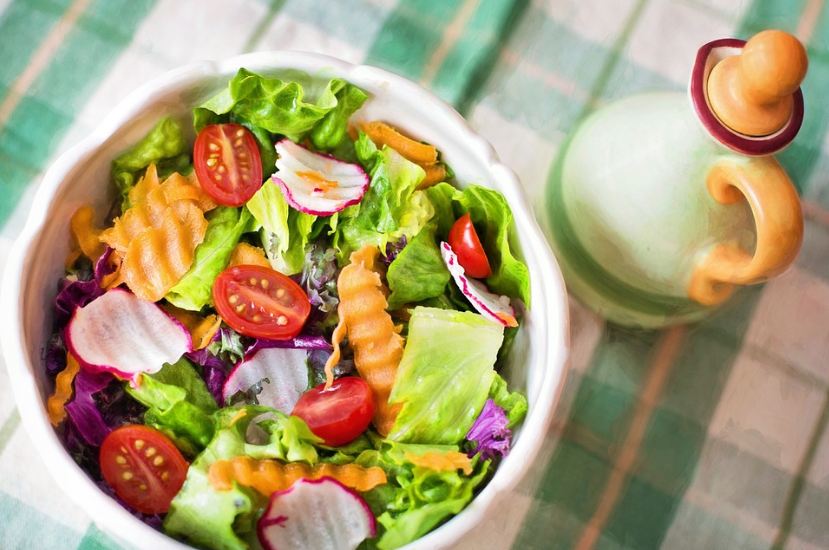Most people who are suffering from dry skin tend to seek skincare products like lotions and moisturizers to solve their problems. However, sometimes, even when you spend a lot of time applying these products, your skin remains dry or dull. When this happens, maybe using moisturizing products is not enough. It’s because, in addition to these products, you also need to consider the foods that you eat, as you can moisturize your skin from the inside out.
Keep in mind that food is an important part of skin health. If a person eats a healthy and balanced diet, their skin may become better and will fulfill its protective functions. In fact, eating certain foods may also help protect and moisturize the skin. But there are also other foods that may hinder or prevent some of the protective abilities of the skin, which might lead to worsening dry skin. For example a diet with lots of fast foods may well
If you want to learn more about how diet can affect your skin, you’re in the right place. Read on as we’re giving you more information on how diet can affect the moisture of your skin.
How Can Food Help Fight Dry Skin?
The skin is an important organ as it provides a barrier to protect the rest of the body from external threats like UV light, oxidants, and bacteria. The protective function of the skin is essential to prevent excess water loss and stop harmful chemicals and allergens from affecting the body. In addition to that, it also helps maintain the body’s temperature.
Nutrients are important in aiding the skin to provide its protective barrier. When you eat healthy foods that give the nutrients they require, these can help support the skin in its protective functions. Similarly, if you do not eat a healthy diet, it can change the function of your skin, which can lead to complaints like dry skin.
People who have dry skin can possibly be suffering from nutrient deficiencies, such as vitamin A, vitamin C, vitamin D, vitamin E, zinc, and selenium. When you ensure that these vitamins are part of your diet, they can help keep your skin healthy and moisturized. In addition to that, consuming turmeric, omega-3, and green tea antioxidants can also help prevent dry skin.
What Foods Can Help Moisturize the Skin?
If you want to achieve dewy, hydrated skin, it is important to ensure that you are getting enough fluids the whole day. Drinking water is one of the best ways to keep your fluid levels up. Furthermore, eating fluid-rich foods like soup, vegetables, and fruits can also help. Keeping your body hydrated does not only improves your overall health but also helps your skin look healthier and younger. Why? It’s because water helps in removing toxins in your system and aids your body in retaining important nutrients.
While water and other fluids affect your overall hydration, there are specific foods that affect the moisture generated in your skin. These are foods that are rich in essential fatty acids like omega-3 and omega-6, which help the skin produce more lipids that strengthen the skin cells. These cells can trap natural oils in your skin and prevent dryness. Some examples of foods rich in omega-3 fatty acids are salmon, walnuts, flaxseed oil, and other fish. Foods that are high in omega-6 fatty acids, on the other hand, include safflower oils and corn. If you are not fond of eating fish, taking an omega-3 supplement like flaxseed oil or fish oil can help increase your intake of essential fatty acids.
Based on some studies, eating foods rich in vitamins B2, B6, B12, C, and E can also help hydrate your skin and as well as repair sun damage. Some of the foods that are rich in these vitamins are whole grains, nuts, citrus fruits, milk, egg yolk, sunflower seeds, and broccoli.
Here are some of the other foods that may contribute to keeping your skin moisturized:
Sweet potatoes: Sweet potatoes contain vitamin A that aids in skin repair. It also has beta carotene that helps strengthen the protective barrier of the skin, helping the skin cells to moisturize and plump up.
Avocados: Avocados are rich in vitamin E, and monounsaturated fats, especially omega-6 fatty acids, that keep the skin moisturized and prevents it from aging.
Cucumbers: Cucumbers contain vitamin C that can help treat inflamed skin. Also, the silica in the peel of the cucumber can hydrate, firm, and nourish the skin.
Asparagus: Asparagus contains vitamin E that can help protect the skin against sun damage. It can also help improve skin texture and prevent wrinkles.
Coconut oil: Coconut oil is rich in antioxidants. Aside from that, it can also be used as a topical application on the skin to help moisturize.
Conclusion
If you want to keep your skin moisturized or you are looking for ways on how to combat dry skin, it is also important to take a look at the foods that you are consuming, in addition to the skincare products that you are using. It’s because no matter how expensive and effective your creams, serums, and lotions are if you are not eating healthily, your skin will still become dry and dull. We hope this helped you learn more about how diet can affect the moisture of your skin.



